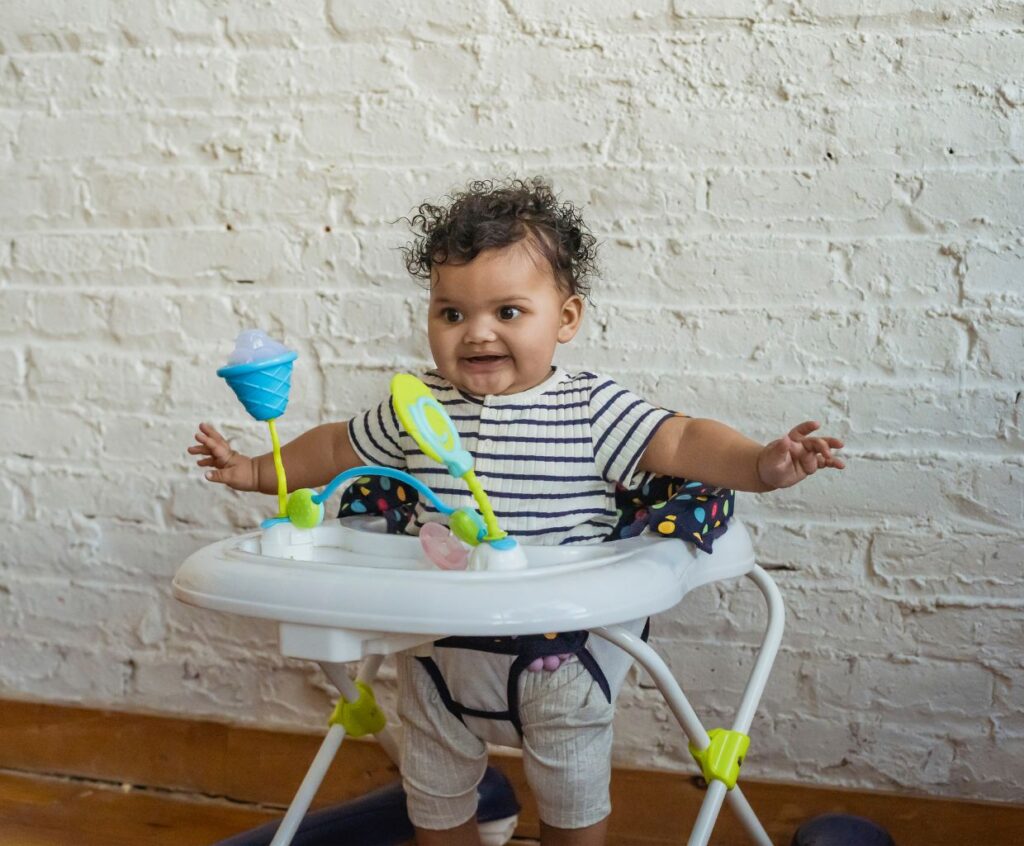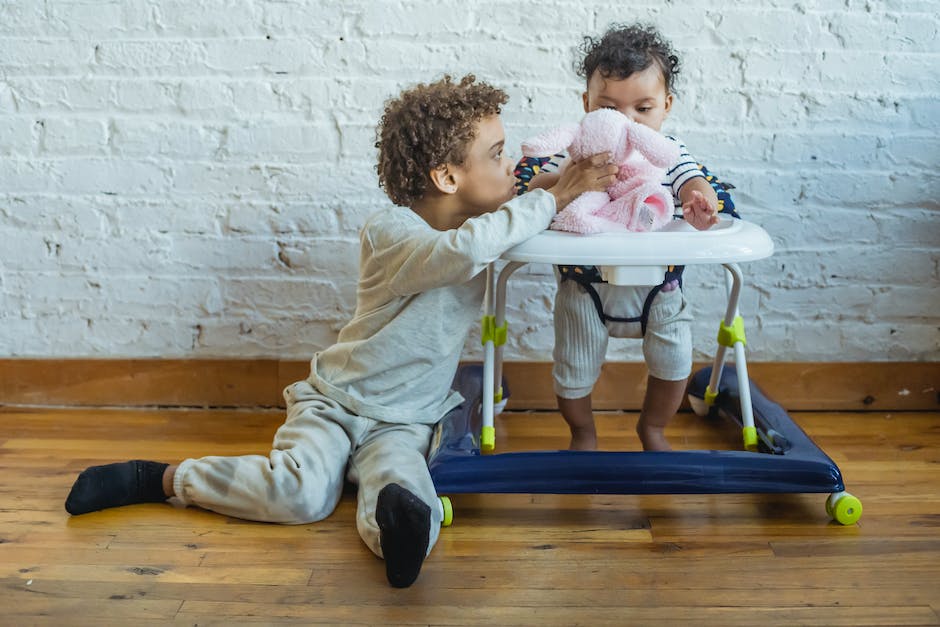Are Baby Walkers Bad for Babies? Understanding the Pros and Cons
Regarding baby walkers, there has always been a debate about their safety and impact on a child’s development. Some parents swear by them, claiming they are a great tool to help babies learn to walk, while others argue that they can be dangerous and hinder a child’s natural development.
In this article, we will explore the pros and cons of using baby walkers, allowing you to make an informed decision for your little one.

The Pros of Baby Walkers
-
- Encourages mobility: Baby walkers can provide infants with an exciting opportunity to explore their surroundings and move independently.
-
- Entertainment: Many baby walkers come equipped with toys, buttons, and activities to keep your baby entertained and engaged.
-
- Exercise: Walking in a baby walker allows babies to exercise their leg muscles, promoting strength and coordination.
-
- Support: Baby walkers provide additional support to babies learning to balance and walk, reducing the risk of falls and injuries.
The Cons
-
- Safety hazards: Baby walkers can be dangerous if not used properly. They can tip over uneven surfaces or near stairs, potentially causing severe injuries.
-
- Delayed development: Some experts argue that baby walkers can delay a child’s natural development of crawling, standing, and walking independently.
-
- Overdependence: Babies who spend too much time in a walker may become reliant on it, resulting in delayed development of balance and coordination.
-
- Restricted exploration: While baby walkers allow mobility, they confine a child’s exploration to a limited area, restricting their ability to move around and discover their environment freely.
– How long should babies use walkers?
Babies should not use walkers at all. Walkers are not recommended for infants as they can be dangerous and pose risks to their safety. The American Academy of Pediatrics (AAP) advises against using walkers due to the increased risk of falls, injuries, and developmental delays.
Instead, it is recommended to encourage natural development and mobility through tummy time, crawling, and supervised play.
– Can baby walkers delay a child’s development?
Yes, baby walkers can delay a child’s development. While they may seem like a convenient way to help babies learn to walk, they can hinder their development in several ways.
Firstly, baby walkers allow babies to move around before they are physically ready, which can lead to accidents and injuries. This can discourage them from wanting to try walking on their own and delay their natural progression towards independent walking.
Secondly, baby walkers limit the baby’s ability to explore and interact with their environment. Instead of crawling, which helps develop essential motor skills and coordination, babies in walkers are confined to a limited space and rely on the wheels to move around. This can hinder their ability to develop balance, muscle strength, and coordination.
Additionally, prolonged use of baby walkers can negatively affect a baby’s social and cognitive development. Being in a walker restricts their ability to engage in meaningful face-to-face interactions with caregivers and peers, which are crucial for language development and social skills.
Overall, it is recommended to avoid using baby walkers as they can delay a child’s development in various aspects and pose safety risks. It is better to encourage natural development by providing a safe and stimulating environment for babies to explore and practice their motor skills.
– What are the benefits of using baby walkers?
There are several benefits associated with using baby walkers:
1. Physical development: Baby walkers can help babies develop their leg muscles and coordination as they learn to push off the ground and move around in the walker.
2. Entertainment and stimulation: Walkers often come with attached toys and activities that can provide entertainment and stimulation for babies. This can help keep them engaged and occupied, giving parents free time to attend to other tasks.
3. Independence and exploration: Baby walkers allow babies to explore their surroundings independently and move around freely. This can help foster a sense of independence and curiosity.
4. Social interaction: Walkers can facilitate social interaction as babies can move around and interact with others, including siblings and pets, in a more mobile manner.
5. Cognitive development: Using walkers can enhance cognitive development as babies navigate their environment, learn cause-and-effect relationships, and develop problem-solving skills.
However, it is essential to note that using baby walkers also comes with risks. Walkers can potentially lead to accidents and injuries, such as falling down stairs or reaching hazardous objects. It is crucial for parents to closely supervise their babies while they are using walkers and ensure a safe environment.
Are there alternative options to baby walkers?
Yes, there are alternative options to baby walkers. Some of these options include:
1. Stationary activity centers: These are similar to baby walkers but without wheels. They have a seat in the center and a tray with toys and activities. This allows babies to sit and play while remaining in one place.
2. Push toys: Push toys are toys babies can hold onto and push while learning to walk. These toys often have wheels and can help babies build their leg muscles and balance.
3. Play mats: Play mats provide a safe and cushioned surface for babies to play on. They often have attached toys and activities to keep babies entertained while lying down.
4. Baby jumpers: Baby jumpers are suspended seats that allow babies to bounce up and down. They provide entertainment and help with leg muscle development.
5. Baby bouncers: Baby bouncers are similar to baby jumpers but are typically used for younger babies. They have a seat that allows babies to bounce and rock.
It’s important to note that the American Academy of Pediatrics (AAP) advises against using baby walkers due to safety concerns. They have been associated with accidents and injuries, and the AAP recommends using alternative options for promoting mobility and development.
Are Baby Walkers Bad for Babies – Conclusion
Like any parenting decision, the use of baby walkers comes with both advantages and disadvantages. It is essential to weigh the pros and cons carefully and consider your baby’s needs and developmental stage.
If you use a baby walker, always prioritize safety by ensuring a secure environment and constant supervision. Remember, each child is unique, and what works for one may not work for another.

